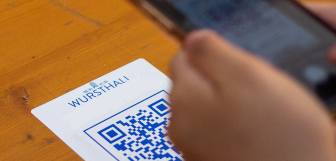Queensland Contact Tracing Changes for Hospitality
Since the COVID-19 pandemic began, hospitality businesses across Australia have been required to keep contact information for a minimum of 30 days. This has been mandated so that our contact tracers can move quickly and trace anyone who might have come into contact with someone with COVID-19.
Businesses have been able to collect this information through a number of different methods including pen and paper check-ins.
This requirement is set out in the Restrictions on Businesses, Activities and Undertakings Direction.
Contact information includes information that is:
- the name, phone number, email address, and the date and time period of guests, patrons and staff; and
- provided to a public health officer within a stated time, if requested by a public health officer; and
- securely stored, not used for any other purpose; and
- deleted after not less than 30 days and not more than 56 days.
However, after a recent outbreak of COVID-19, authorities were required to contact trace guests who had visited a hotel in Eight Mile Plains during a specific period of time.
What they found was that many entries were "illegible manual sign-in information or some simply did not check in at the venue," the health authority said in a statement.
A number of public health alerts have been issued as a result, but Queensland Health was forced to make a renewed call to patrons of the hotel on Saturday night after identifying many who were not on venue contact tracing lists.
New electronic record keeping requirements
It is now mandatory for all venues in Queensland to keep electronic records of patrons, as paper records are in the process of being phased out.
Queensland Premier Annastacia Palaszczuk said the crackdown came about due to instances of illegible handwriting.
As of 1:00am Wednesday 23 December, all businesses in the hospitality industry (such as pubs, clubs, restaurants and cafés) in Queensland must comply with new electronic contact information collection requirements per the Restrictions on Businesses, Activities and Undertakings Direction. The Direction will be updated to reflect this requirement. This is due to the high risk nature of the hospitality industry.
Over the coming weeks, it will be determined whether these expanded electronic record keeping requirements will be rolled out across other industries. This will be decided based on a risk assessment of other businesses and venues.
What will this mean for businesses?
- Businesses must now move away from paper-based record keeping methods; and
- Businesses need to have an electronic form or other digital method to capture contact information.
What does electronic mean?
There are a variety of electronic methods businesses can use to adhere to restrictions.
These could vary from:
- QR codes
- Online fillable forms
- Online booking systems
- Digital spreadsheet
If a business already has an online booking system that captures patron information, there is no need for a secondary form of digital record keeping. This restriction is ensuring that all businesses in the hospitality industry are moving away from paper-based record keeping, and that the digital information can be provided in a timely manner upon request. It is imperative that contact tracers can use legible and accurate information to contact people.
For more information on using your Epos Now system to gather contact details, read our guide on how to comply with the UK's test & trace program here.
